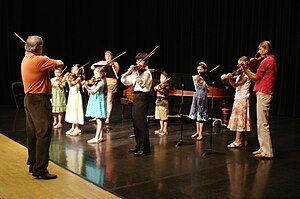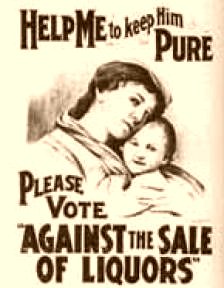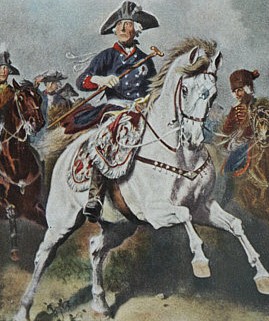I am sick of reading people's political post on Facebook so I
refused to make any. However I do have some things to say therefore I am
writing this blog post. First of all, I have not decided who I am voting for yet. I am leaning
one way, which will be clear soon if it's not by my profile pic, but I am still undecided.
| Wanting to head in different directions |
I was accused
recently of being biased for Obama which is probably true.
Why?
Maybe it's because of some t-shirts I have from the 2008 campaign. But there are several reasons. First, a little bit about my
personal experience. I grew up in Cambridge, MA and as a result I went through
a very liberal school system. I also grew up, and still practice, as a Mormon. (To see read more about this odd combination see several old blog posts).
Personal
My family lives in the same stake (regional church
area) as the Romney family. The closest interaction I had with them was that
Matt and Tag, the two oldest sons, were leaders in my youth group while they
were attending Harvard. My brother and I both had wonderful experiences with
them, where they helped us learn and develop good character and Christ-like
attributes.
Mitt was also the Stake President (regional leader) from 1986 to 1994. I
don’t really remember this very well because I was too young but there is one experience that has been recalled several times
in my family. A teenager was trying to administer the bread and the water on
Sunday in Church, which happens every Sunday. He had dyed his hair
blue and Mitt did not allow him to participate even though he was dressed
appropriately. The handbook for the Church says something to the affect that
young men should be well groomed and clean. It could be argued that blue hair
means not well groomed but my family does not agree with that. Soon afterwards he stopped coming to Church.
I have no personal experience with Barack. The closest I can get,
is that we both like similar music; the Roots, Common, Mos Def, etc. If you like the
Roots, Jimmy Fallon, or Obama check this out:
Governing
I have in some way or another been governed by both Mitt and Barack. Mitt was Governor of Massachusetts from 2003-2007. During this time period I was senior in high school, went to BYU (Mitt's Alma Mater), and was serving a mission for the LDS church in Mexico City, Mexico. So for the majority of the time I was not there and therefore did not experience much of his term.
Barack has been president for almost the last four years, during which I have been living in the country almost the whole time.
The health care bill he spearheaded made it so that I could be on my mom's health insurance for an extra year, despite being married. Despite what Mitt said in Debate #1, there is no way they would have covered me being over 25 and married had it not been for the health care bill. Also, my wife, almost 24, can be on her parents insurance for 2 more years.
Over the last several years I received funding for my undergraduate education that I do not believe would have been there if it had not been for the Obama administration. This assistance made it easier for me to survive and enabled me to afford to get married just over a year ago. Also, I was truly grateful that Barack helped end the war in Iraq, a place we never should have gone in the first place. I believe it was a waste of lives and money.
So one of the republican slogans is something to the effect of "Are you doing better than you were 4 years ago?"
My answer is yes.
I realize this is not true for lots of other people but I have seen many improvements in my life over the past 4 years, some of them thanks to the current administration.
Projection
I believe both Mitt and Barack truly love America and want to make it a better place. However their ideologies and solution techniques are quite different.
I think if Barack gets reelected he will still keep trying to do what he's been doing. He'll probably be more aggressive, as all presidents are in their second term.
 I think if Mitt gets elected he will try furiously to balance the budget, which is not an easy task. Say what you want about the ethics of what he did, he was a good business man. If anyone can do it, he's probably the right guy. But at what cost? Big Bird is enjoying a revival of popularity because of Mitt's comments about PBS in Debate #1. PBS will not be the only victim. Mitt said that for every program he will ask "Is the program so critical it’s worth borrowing money from China to pay for it." If not he will get rid of it.
I think if Mitt gets elected he will try furiously to balance the budget, which is not an easy task. Say what you want about the ethics of what he did, he was a good business man. If anyone can do it, he's probably the right guy. But at what cost? Big Bird is enjoying a revival of popularity because of Mitt's comments about PBS in Debate #1. PBS will not be the only victim. Mitt said that for every program he will ask "Is the program so critical it’s worth borrowing money from China to pay for it." If not he will get rid of it.
The question I ask myself is do I trust him to make decisions about what is critical? Is health insurance critical? Are support programs for the poor (or "pa-or" as Mitt kept pronouncing it in debate #1) critical? I know he said school funding is critical but what schools? Elementary schools? High schools? Colleges? Tuition assistance programs? How about science research funding? I would like there to still be a budget for my master's program next year and my PhD program after that. Is that critical?
I still haven't decided between the two candidates but I'm leaning.
























